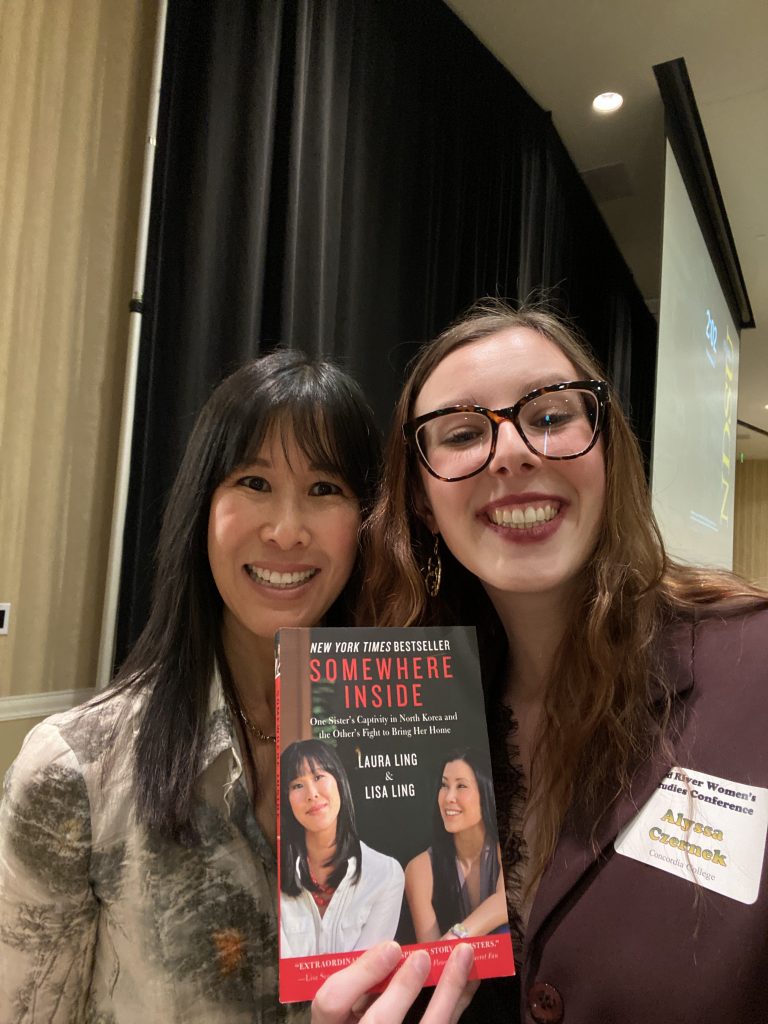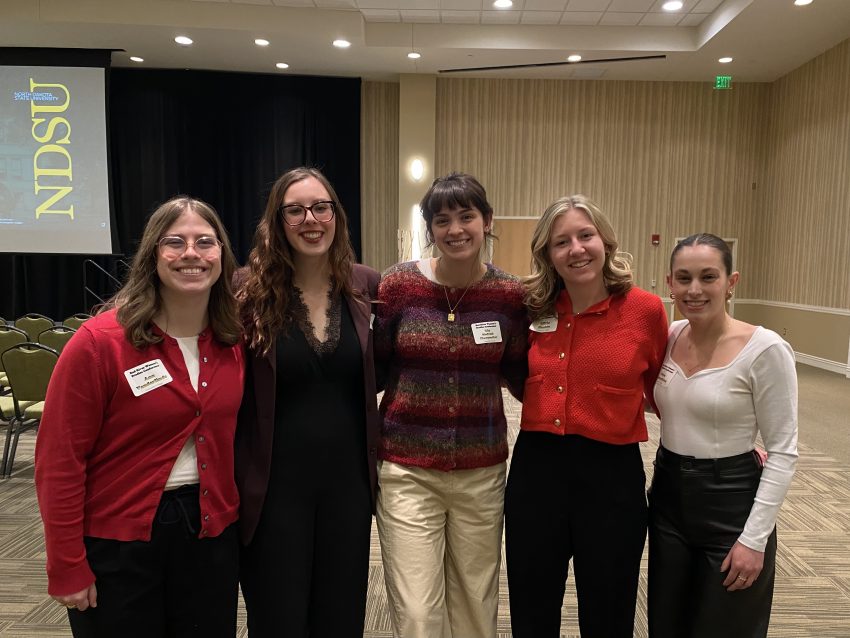The Red River Women’s Studies Conference was held on Friday, March 21 on the NDSU campus. The theme “Rethinking Feminist Movements” pushed students to examine global and local issues by examining them through multiple perspectives.
Delaney Claggett, a junior at Concordia College, was one of many students selected to be a panel presenter. As an environmental studies major, her presentation focused on Crisis Pregnancy Centers and the impact they have in communities.
In her presentation, Claggett argued that CPC’s are known for taking advantage of women who are searching for reproductive healthcare, sometimes even lying about how far along women are in their pregnancies. She highlighted that in a state like North Dakota where no Planned Parenthood location exists, women are often left with no option other than CPC’s where they are often pressured into counseling sessions.
“Those who work at CPC’s are only given four weeks of training that doesn’t include medical training,” said Claggett.
This is a topic that Claggett wrote a research paper on last semester after watching a documentary titled Preconceived.
Claggett shared that the RRWSC was a great space for undergraduate students to get experience presenting their research in front of peers because of the enthusiam and comradery among attendees.
“It was a fantastic experience. It was reassuring to have other classmates there who were also presenting to support each other.” said Claggett.
The keynote speaker was Laura Ling, a journalist who has won an Emmy Award for her investigative journalism and is perhaps most well-known for her time spent as a captive in North Korea.

Ling’s speech at the RRWSC echoed much of what she writes about in her memoir, “Somewhere Inside: One Sister’s Captivity in North Korea and the Other’s Fight to Bring Her Home” which Ling wrote with her sister Lisa Ling.
Ling said she wanted audience members to walk away from her speech with hope. Despite spending 140 days detained in North Korea, Ling said her overwhelming feeling is gratitude.
“Every day, no matter how low I was feeling, I still made sure to list at least one thing I was grateful for that specific day. I might have been grateful for seeing a butterfly outside my window even if I wasn’t allowed to go outside, or I might have been grateful for getting three rations of food that day even if they were small,” she said. “This is what got me through. This is what stopped me from losing all hope.”
While in North Korean prison, Ling was the first American to be tried and convicted by the foreign country’s judicial system. She was convicted of illegal entry to North Korea and having hostile intentions to take down the North Korean regime.
Ling was reporting on the sex trafficking of refugees crossing from North Korea into China where they were often sold as brides or forced into the sex industry.
She was sentenced to 12 years of hard labor for her crimes. Ling remembers breaking down and sobbing after receiving her sentence, losing hope of ever returning home.
“After hearing my sentence, one of my guards told me something I carry with me every day. She said ‘Laura, always have hope.’ that is the message I want to spread today,” Ling said.
Lily Medved-Charpentier, another junior at Concordia, presented on ecofeminism and the narrative around mother nature. She argued that by likening the earth to a woman, people are more likely to treat the planet poorly.
“While it’s of course not the end-all solution against oppression, ecofeminism can give us a way to understand how systems like patriarchy, colonialism, and consumerism lead to degradation of both women’s rights and the environment. There’s a call for radical change here, that pushes us to really ask why we accept these structures,” she said.
Medved-Charpentier also highlighted a link between oil fracking and sex trafficking. There have been observations by scholars that link an increase in oil fracking with an increase in sex trafficking near the boom towns.
This connection was brought to Medved-Charpentier’s attention through research and writing done by Hilda Koster. Koster earned her PhD from Chicago Divinity and her research focuses on ecological theology.
“There’s a shocking connection between environmental degradation and control over women’s rights, and as heartbreaking as the research is, I think it prompted good discussion with people at the conference,” Medved-Charpentier said.
“My favorite part about the conference was being able to share a space with so many passionate and intelligent people. I learned so much about topics that I never would have looked at before, and to hear in-depth research from people who have so much care for women and our impact was just a really beautiful experience,” she added.

